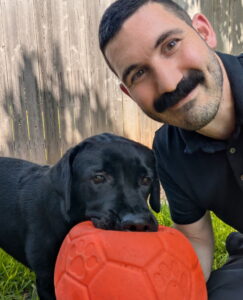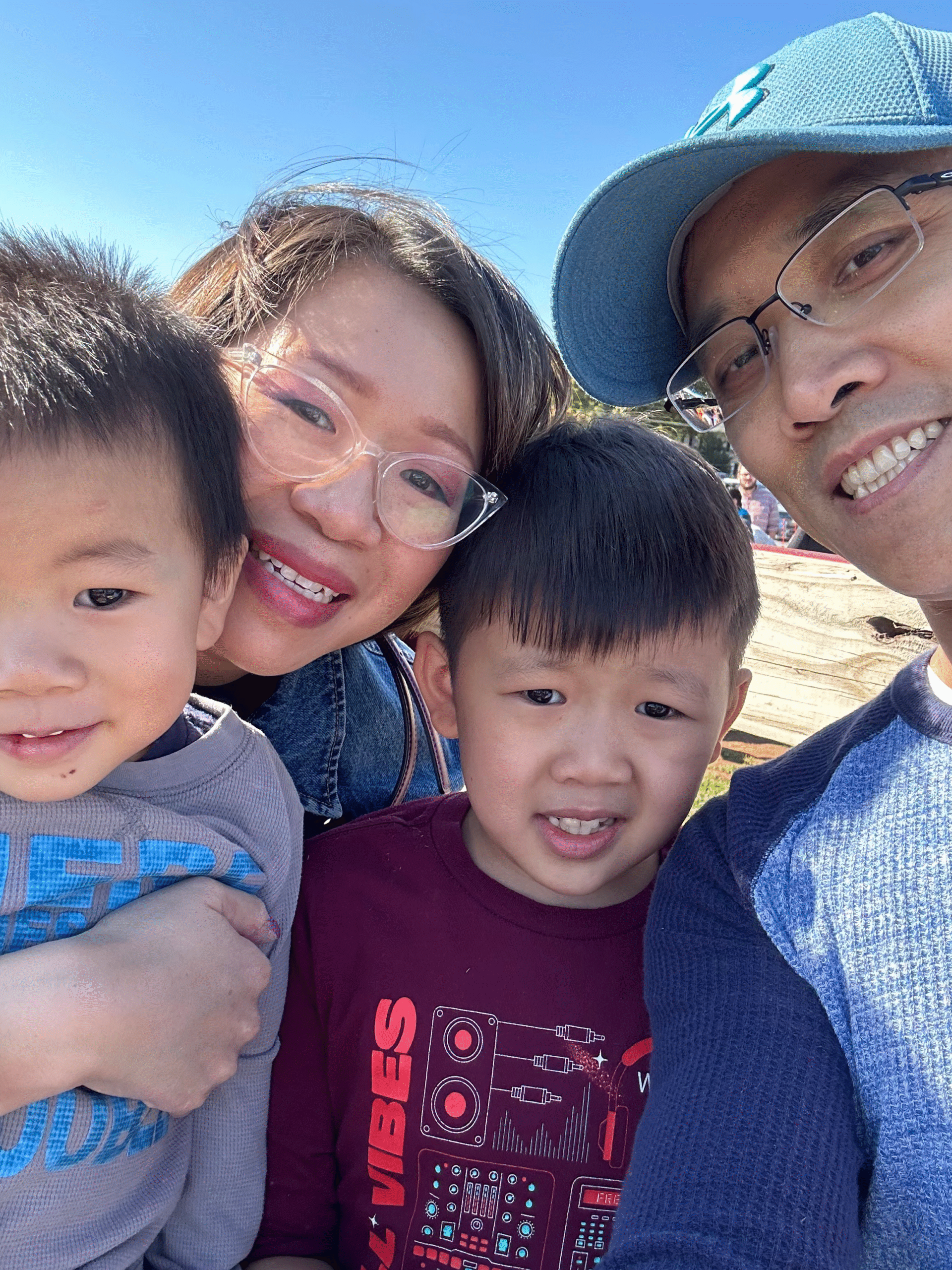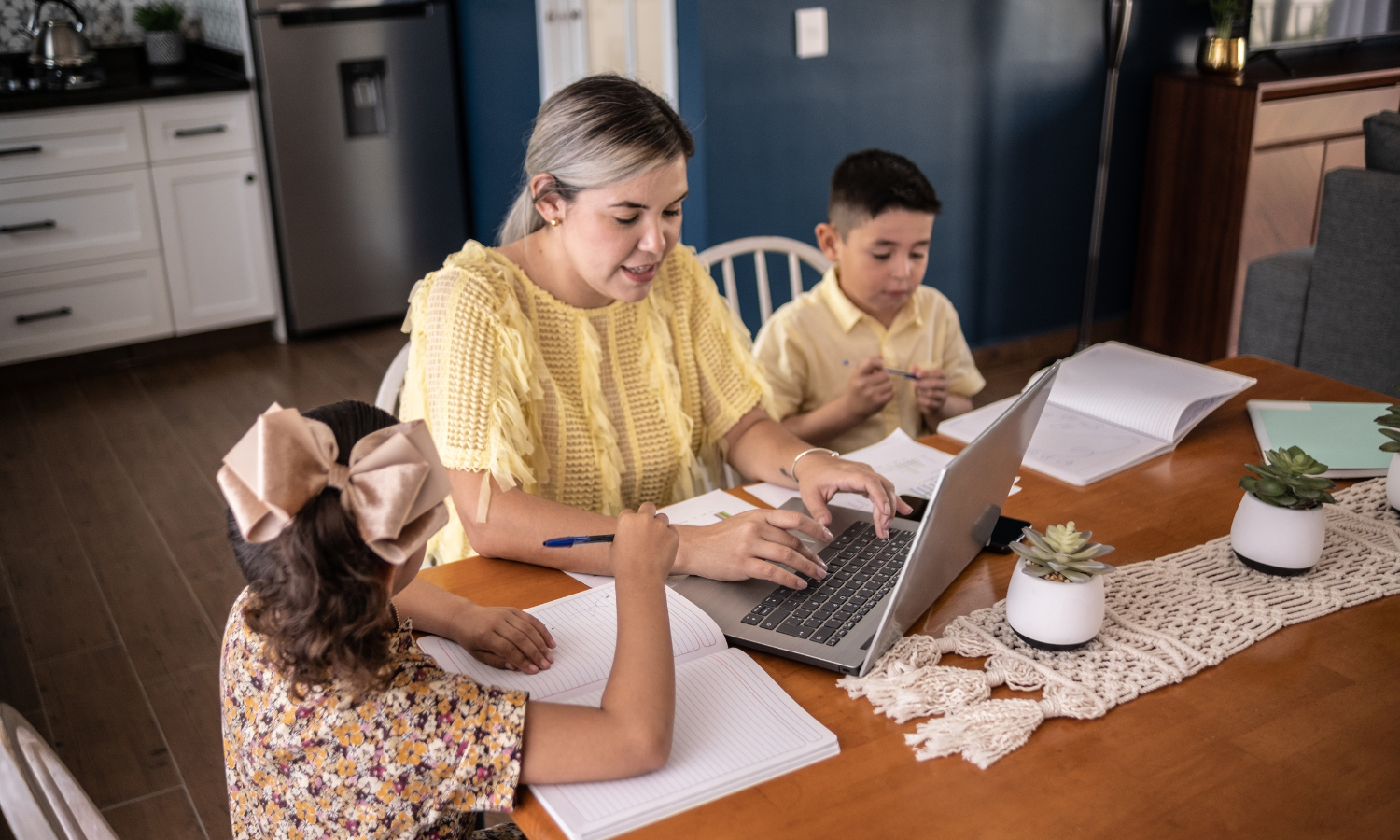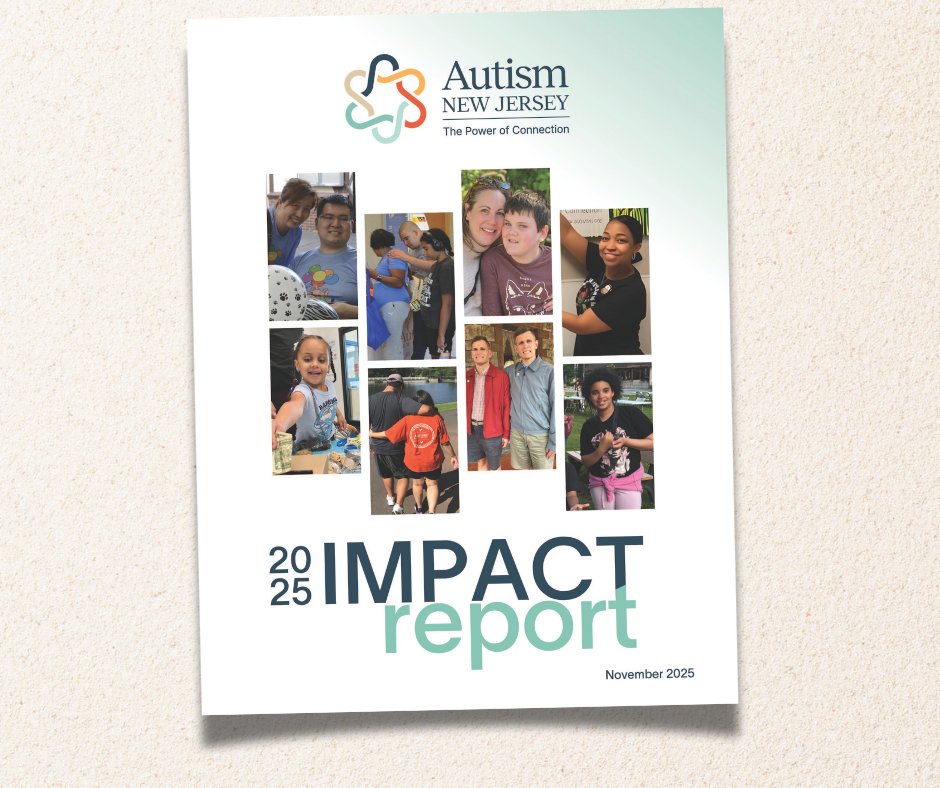By: Cassidy Grom
Central to Autism New Jersey’s mission is its 800.4.AUTISM Helpline, where expert staff members help family members and individuals with autism navigate every aspect of life, ranging from getting a diagnosis, to finding appropriate education and therapies, to transitioning into a group home and planning for caregivers’ end-of-life issues.
Being diagnosed with autism, or caring for an autistic family member, can be a challenging journey, but Autism New Jersey is here to help.

This month we interviewed Helpline & Family Advocacy Director Jon Gottlieb, who oversees the helpline team and regularly answers calls and emails himself. Gottlieb has worked for Autism New Jersey for almost 5 years. Earlier in his career, he was a practicing lawyer and co-owned a special education law firm in New York State. We talked about how he uses his legal experience to help residents with autism, his thoughts on the current state of disability of law, and of course, his six-month old puppy.
This interview has been condensed and edited and is the second in a series of interviews with the Autism New Jersey staff.
Cassidy Grom: Tell me about your philosophy behind running the helpline.
Jon Gottlieb: When you call and you speak to a member of our helpline, it’s a human being on the other end who really understands where you’re coming from. Even though we could talk to someone on a horrible day, maybe the worst day of their life, I want the helpline to be a silver lining of that cloud. I want them to feel respected, to be given as much time as they need, and to unroll their story so that they feel listened to.
Part of what we do is explain the gap between the way things should be (like certain laws or services) and the way things are in the real world — and why that gap exists. We want to really empower parents and self-advocates and professionals with knowledge, with tools, so that they can go out and make their own lives better — then invite them back to talk with us as many times as they need to, to build those strong, powerful relationships.
CG: You listen to a lot of calls. I’m sure some are heavier than others. Are there any calls you can’t forget?
JG: Yes, there are many I can’t forget. Sometimes it’s because the calls are emotional, sometimes it’s because I’ve borne witness to someone who is inviting me into their life, and their struggles. There are series of calls where I speak to the same person for so many hours over the days or months or years, where I build a relationship with them. There was a self-advocate who wanted to get a diagnostic evaluation, but she was afraid of how it would impact her career, and we would talk about how her suspected autism has impacted her relationships over the years. .
I also remember the mom of the adult with autism who talked about how little she sleeps out of fear out of what will happen when she is gone. Who will take care of him?
I talk to parents whose child displays severe challenging behavior — they will pull out their parents’ hair or bite their faces — but they are best friends. These conversations create a closeness between me and the callers that means I’ll never forget them. It makes me pull down my own emotional armor and be vulnerable, too, to connect with them.
CG: Earlier in your career, you were a lawyer. Do you have a favorite law?
JG: The Individuals with Disabilities Education Act (IDEA) is my favorite. It’s an outgrowth of the civil rights movement of the ‘60s. It’s gone through a lot of transformation, and it forms the bedrock of what we do in the education space. It’s a guarantee of educational security for families; it results in a lot of people getting access to services where they otherwise wouldn’t.
CG: Where do you see space for improvement in disability law and education law?
JG: We’ve come a long way from where the field was just 10 or 15 years ago, and I think there is a long way to go still. I see space for improvement. For some families, access to justice is based on how much money they have. There can be a real difference in outcome based on if the family can hire a private lawyer or not. There are huge educational disparities for kids based on any number of things: their geography, their household composition, their parents’ level of education. It shouldn’t be like that. Every kid should be entitled to an excellent education. Education determines someone’s entire life story.
CG: Why do you like your job?
JG: I feel extraordinary lucky to be able to do what I do. I solve complex challenges. I meet fascinating, interesting people. And I learn every day, and it is invigorating and energizing.
Our helpline program is unique, and partly because we talk to people for as long as they need. When I’m talking to a family member or self-advocate on the helpline, I’m part therapist, part consultant, part clinical advisor, and part friend.
And our team has a tremendous amount of content expertise. Helpline staff don’t even touch a phone until they’ve gone through six months of training covering everything from diagnostic evaluation process to setting up a trust for individuals with autism for when a parent passes on.
CG: Turning to some lighter, topics, I heard you got a new puppy?
JG: Yes! He’s a six-month old black lab named Tex. Sometimes I think he is smarter than me; I don’t know who is training whom. He is funny and is fiercely independent, but somehow I always find him underfoot. He loves a good ice cube to chew on in the summer, and his favorite toy is a gigantic lamb chop that is about as big as he is. He has a bottomless belly and a pure soul.
CG: What do you do for fun?
JG: I like making things — wood working, ceramics, painting, drawing — and video games. I watch a lot of movies and like to sing karaoke with my wonderful, brilliant wife. My favorite movies right now are “The Fifth Element” and “Nope.”









